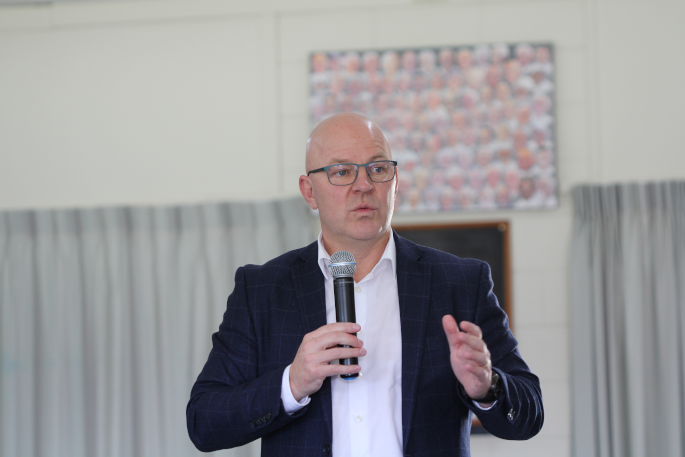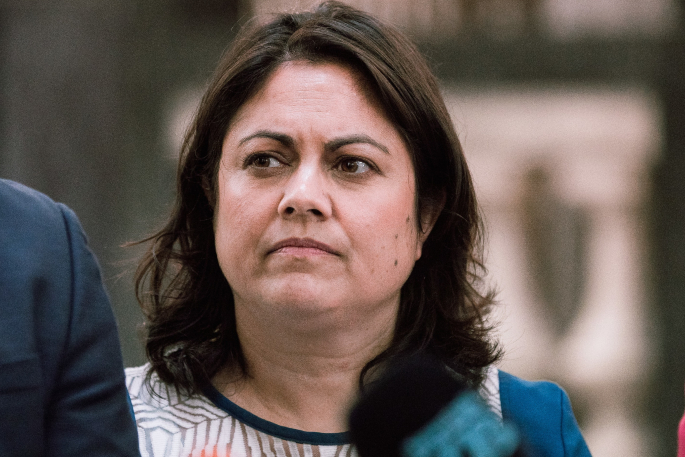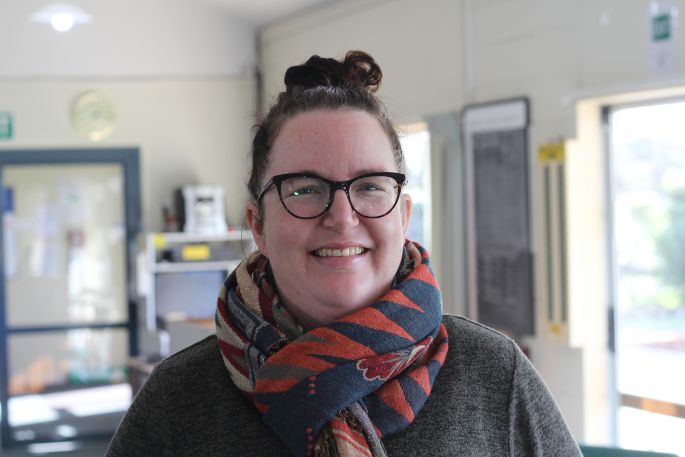'I could be dead” is how a Tauranga resident describes her experience seeking public mental health services while dealing with bipolar disorder.
Sarah Clement is one of many locals who attended a public meeting on mental health with National spokesperson for mental health and suicide prevention Matt Doocey and Tauranga MP Sam Uffindell.
She says after feeling symptoms of a depressive episode, she phoned her GP for help, and said she 'was worried” about where her mental health could end up.
'He didn't seem to take me seriously. I told him I wasn't feeling my best and was worried about where it could go. He wouldn't touch it. I could be dead,” says Sarah.
When asked if she has faith support would be there for her if she needed it again, Sarah says 'probably not”.
'I want it to be easier for people suffering to access services. Now, if you're trying to get into the hospital, it's hard. It feels almost impossible. Sometimes it feels like a roadblock – you can be quite ill, but sometimes people don't see it, because you don't look sick. We get sort of forgotten about.”
Another Tauranga resident attending the meeting says the lack of access to mental health services in Tauranga is 'appalling”.
'Because [a family member] has been tipped out of the health system here, we are having to send them to another city to get seen. We are unable to get them any respite in Tauranga city, despite being the fifth biggest city in the country.”
The person adds they have had to spend over $400 on one weekend alone for her family member to be seen by a professional.

National spokesperson for mental health and suicide prevention Matt Doocey. Photo: Taylor Rice/SunLive.
Meanwhile, National spokesperson for mental health and suicide prevention Matt Doocey says the biggest barrier to timely care with mental health services is the "workforce crisis".
"People aren't able to access services and are stuck on waiting lists. The biggest change we can make is reducing the number of vacancies," says Doocey.
"Mental health has been a poor second cousin to mental health for a long time, even over successive governments. What we know about mental health today is we are about 50 years behind from physical health.
"If you think about all the developments and funding which has gone into physical health in the last 50 years, we have a lot to catch up on."
National offers dedicated mental health minister
Doocey says if National were to be elected, they would introduce New Zealand's first mental health and suicide prevention minister.
"Some countries overseas solve this by opening a mental health ministry, but we don't believe there needs to be another government department or ministry. But this stand-alone minister will be able to focus on the issues within the mental health area on a daily basis.
"You can imagine the health minister can be quite distracted by physical health issues, so we think by splitting it out, a minister can be focused on the issue day in, and day out."
Doocey adds the current Government has also shown New Zealand's mental health crisis is "not just about funding".
"If it was [about funding] the $1.9 billion the Government has spent on mental health would have made quite a big difference. The Mental Health and Wellbeing Commission report came out and said despite the $1.9 billion, there has been no material improvement. That shows you can put money into an area, but you need to address the structural issues first.
"If there's no workforce in these areas to deliver services, the money isn't going to make a difference."
Funding community organisations
Doocey says National would also match funding for community services such as MATES in Construction and Mike King's Gumboot Friday.
"By resourcing community sector, we can take some of the demand away from the public mental health system. Gumboot Friday currently spends $2.5 million to deliver 19,000 sessions to 12,000 young people.
"They have a workforce already, outside of the public mental health workforce ready to go and have the capacity. So this fund would double their ability and allow them to see 24,000 young people over 20,000 sessions."

Minister of Health Ayesha Verrall. Photo: Samuel Rillstone/RNZ.
Minister of Health Ayesha Verrall says the current Government has "created a mental health service from the ground up since 2017".
Government aiming for "better resourced" system
"Our health reforms aim to address years of underinvestment and to create a better resourced, more connected health and mental health sector that delivers equitably for all New Zealanders.
"It's important to understand that change on this scale takes time, but since 2019 new and enhanced mental health and addiction services have become available in every District of New Zealand and we know Access and Choice is helping tens of thousands of New Zealanders every month. Including specific services for youth.
"Budget 2022 also saw investment in Child and adolescent specialist mental health and addiction services of $18.7m over four years.
"This will increase the capacity of existing specialist child and adolescent mental health and addiction services to see around 1,300 more children and young people per year by the end of the roll out in 2025/26. Funding will support a mixture of clinical FTE, peer support FTE and cultural support FTE.
"The Access and Choice programme supports young people through our integrated primary mental health and addiction services accessed through general practice, Māori, Pacific, and our Youth specific services and has provided more than 844,000 sessions overall to the end of March this year.
"One reason for the increased demand for acute services is that before this Government invested in primary mental health and addiction care, there wasn't enough support to stop small issues becoming big problems.
"Now, for the first time, there are real services to help prevent more people from falling through the cracks. We've put mental health help at local doctors and schools around the country, as well as universities, online, on the phone and through smart apps. This means more people are being seen and receiving the help they need."



2 comments
Tank
Posted on 14-06-2023 08:11 | By Tank
Have you not heard of HIPS health improvement practitioner at a few GPS now in Tauranga. It’s a free service from an experience mental health clinician . Easy to access through your GP
Tank...
Posted on 14-06-2023 16:52 | By This Guy
Did you not read the bit about theme saying their GP didn’t seem to take them seriously. How is it going to be "Easy access through your GP" if your GP fobs you off? and this is assuming that HIPS doesn't have a massive waiting list like every other health facility in this country...
Leave a Comment
You must be logged in to make a comment.